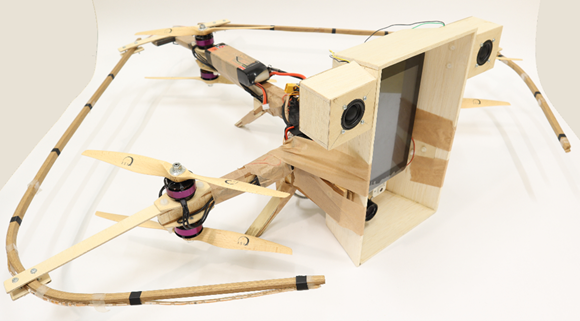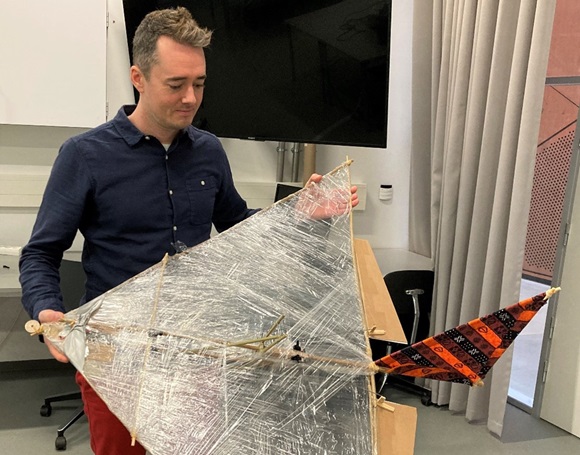The goal in the embodiment and ethics research area is to create drones that are both effective and ethical by design, in support of the SDU UAS Center's mission of creating drones for the benefit of society. This includes research, teaching, and collaboration using holistic and ethically-informed methods such as value sensitive design (VSD), capability caution, and speculative design.
Ethical principles and ethical frameworks are used to build real drone prototypes, including those for Danish healthcare (top photo), search and rescue (Figure 2), and mapping in Africa (Figure 3). These drones are made of unique materials and exhibit special capabilities – for example, high-performance structures made from wood, drones powered and controlled using recycled electronic waste, privacy-enhancing drone camera systems, and propellers that produce lower sound frequencies designed to preserve calmness.

The SDU UAS Center is developing key research areas within embodiment and ethics:
- Development and application of ethically-informed engineering practices including value sensitive design, capability caution, and speculative design
- Building unique drone prototypes inspired by ethics which support human values such as fairness, privacy, and calmness
- Interdisciplinary collaboration with humanists and social scientists to create high-performance and responsible drones

Related research projects
Value sensitive design of unmanned aerial systems (PhD thesis)
Upcycled African drone with Engineers Without Borders DK
Center for Culture and Technology
Value sensitive design in the drone domain (workshop)
+870x375/healthcare-drone-top.jpg?h=375&iar=0&w=870&hash=5ECB138978E65E8FA065563D6B7D5D4F)